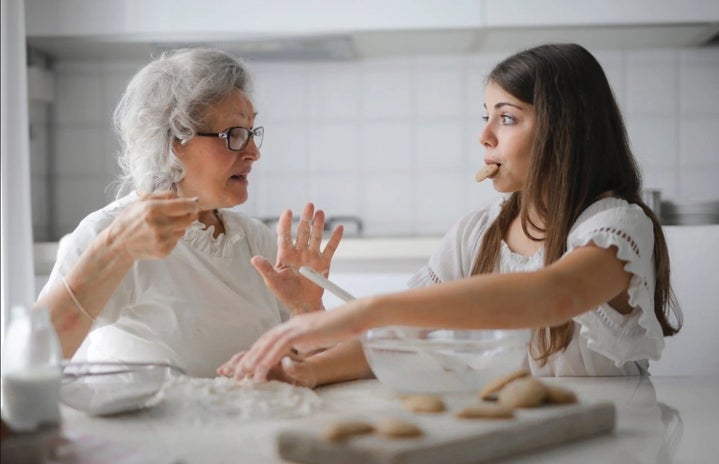Most of us strive for a long, healthy, happy life, but few know how. We can often get caught up in the lifestyle of partying, eating out, and pulling all night study sessions at university. However, the lifestyles of centenarians worldwide will make you think about how vital these lifestyle choices we make every day are for our long-term future.
Dan Buettner’s Netflix series “Live to 100: Secrets of the Blue Zones” explores five areas across the globe: Okinawa, Japan; Ikaria, Greece; Sardinia, Italy; Nicola, Costa Rica; and Loma Lina, California. These areas, Blue Zones, are home to people who live extraordinarily long lives. The four-part series broke down the patterns and reasons that explain why and how these people live to 100 into four categories: natural movement, positive outlook, wise eating, and good connection.
Not too far from the TikTok trend of ‘hot girl walks’ is the natural movement of people across the Blue Zones. Walking instead of driving, spending time outdoors, gardening, or even doing everything (as simple as baking) by hand are some of the simple natural ways centenarians get their daily exercise. Incorporating exercise into your everyday life makes it easy to be active; it cuts out the need for subscriptions to fancy gyms and personal trainers and instead focuses on more sustainable and straightforward forms of movement. Including a daily walk in your routine is a great way to start exercising more comfortably and naturally like our bodies are designed to.
In a generation with more advocates for mental health than ever, this will likely not come as a surprise: a positive outlook and the peace of mind that comes with it have also been proven by Buettner to promote longevity. A sense of purpose for life is seen across the Blue Zones and explains how people living there keep calm. The role of faith, no matter religion, is also shown to be essential and unwinding regularly. So, next time you want to go for a night out with friends and escape the stress of exams, do it! That beer-fuelled relaxation may be your secret to living another 80 years.
Wise eating is, of course, a key to a healthy, long life, however maybe not in the way you would think. No, the key is not low-calorie, restrictive diets but protein-rich plant-based diets in moderation with daily wine. Yes, daily. Except for those in Loma Linda, almost all the Blue Zone residents were seen drinking one or two glasses of wine while socialising or eating with family. Another excuse for us to justify that pub night with our friends.
Arguably, the most critical commonality that can be taken from the Blue Zones is the good connections all centenarians are seen to have. Focusing on keeping family close has a tangible impact on how long people live. More romantically, we know the significance of marriage and partnership across the Zones and the impact of the companionship it provides later in life. If you are single, do not fret, as it’s also proven that having a close circle of friends holds weight in the quality and length of life – so keep your besties nearby.
As we navigate student life, the wisdom taken from these Blue Zones reminds us that the longevity and wellness we crave are not found in fad diets, expensive vitamins, or intense workout routines but in the culmination of mindful, intentional living. So next time you consider driving to class, try getting up earlier and walking, instead of ordering takeout, try a new veggie recipe and maybe even visit a new pub with friends. Any of these practices could contribute to a lifestyle reminiscent of the Blue Zones, and they’re relatively easy to incorporate into our daily lives. Moreover, they might hold the key to unlocking the secrets of living to 100.


